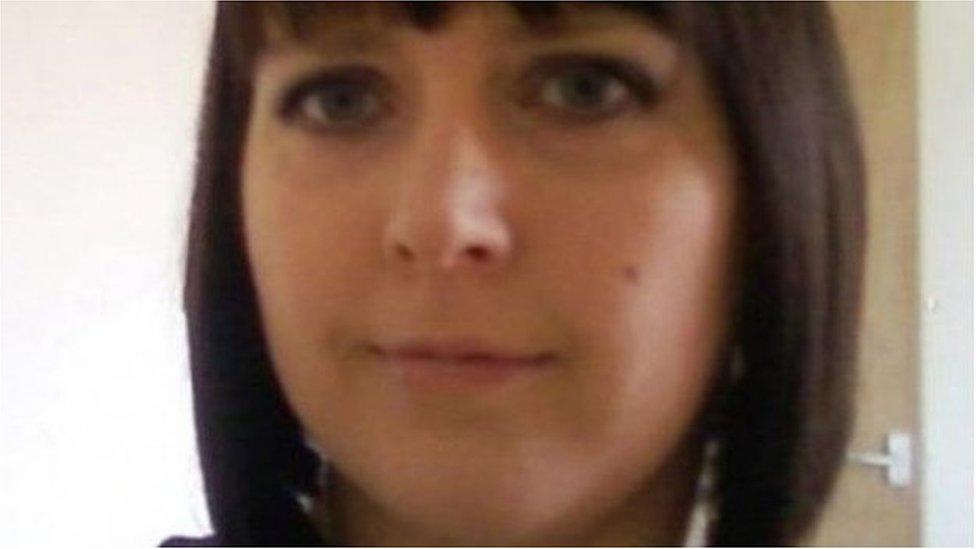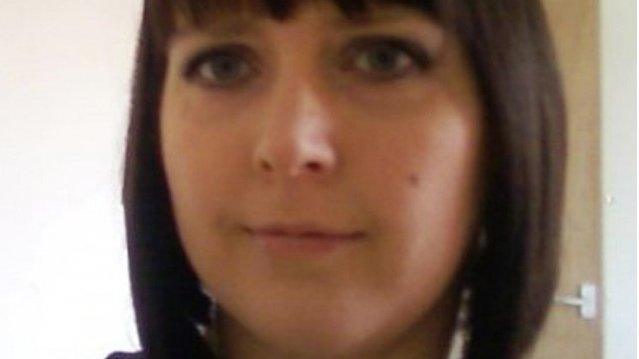Police forces 'ignoring Clare's Law and failing women'
- Published

Clare Wood did not know her ex-boyfriend had a long history of violence against women
The father of a woman murdered by her former partner has accused police forces of ignoring a law set up in her memory to protect potential victims.
Clare's Law, introduced in 2014 after Clare Wood was killed in Salford, allows those in fear of domestic violence to ask police for information.
Figures for 2016/17 show Cumbria Police disclosed data in 96% of cases, while Bedfordshire revealed material to 7%.
Michael Brown said some forces "need to get their act together".
Ms Wood was unaware of George Appleton's history of violence against women before he strangled her and set her body on fire in 2009.
Mr Brown said the police response figures were "very disappointing", adding that some forces were "not only letting Clare down, but the women of this country".
"Tackling domestic violence should be a priority - it affects one in four women," he said.

Best-performing constabularies:
Cumbria - 96% (245 disclosures/256 requests)
South Wales - 71% (143/200)
Cleveland - 68% (188/275)
Suffolk - 65% (321/484)
Durham - 54% (129/244)
Worst-performing constabularies:
Bedfordshire - 7% (3 disclosures/38 requests)
Northumbria - 9% (25/273)
Essex - 9% (110/1,127)
Metropolitan Police - 26% (121/452)
Nottinghamshire - 26% (49/189)

The national average for England and Wales is 43%, with 3,612 requests granted from 8,490 requests.
The Home Office figures, analysed by the Bureau for Investigative Journalism, include both "right to ask" cases, where information was requested, and "right to know", where police warn potential victims without being asked to do so.
'Scrutiny of any disparity'
A Bedfordshire Police spokesman said the force recognised "the 'right to know' element to Clare's Law has been underused".
It was "working to improve the knowledge and understanding within our workforce and increase its use to provide early intervention", he added.
Prof Sandra Walklate from the University of Liverpool, who has assessed the Clare's Law scheme, said "justice by geography" was "not really a surprise [as] it has always been the case".
"Different constabularies have different priorities," she said.
"Larger police forces covering big cities will be focused on organised crime or terrorism, while smaller ones like Cumbria may have more resources to concentrate on domestic violence."
Deputy Chief Constable Louisa Rolfe, the National Police Chiefs' Council's lead for domestic abuse, said the scheme was still "relatively new and forces are continuing to negotiate the legal complexities of disclosing sensitive information".
She said the service was being reviewed to enable "scrutiny of any disparity in use", but it remained "an important tool and it is crucial we identify the best way to protect victims".
- Published1 October 2015

- Published26 January 2015

- Published8 March 2014
